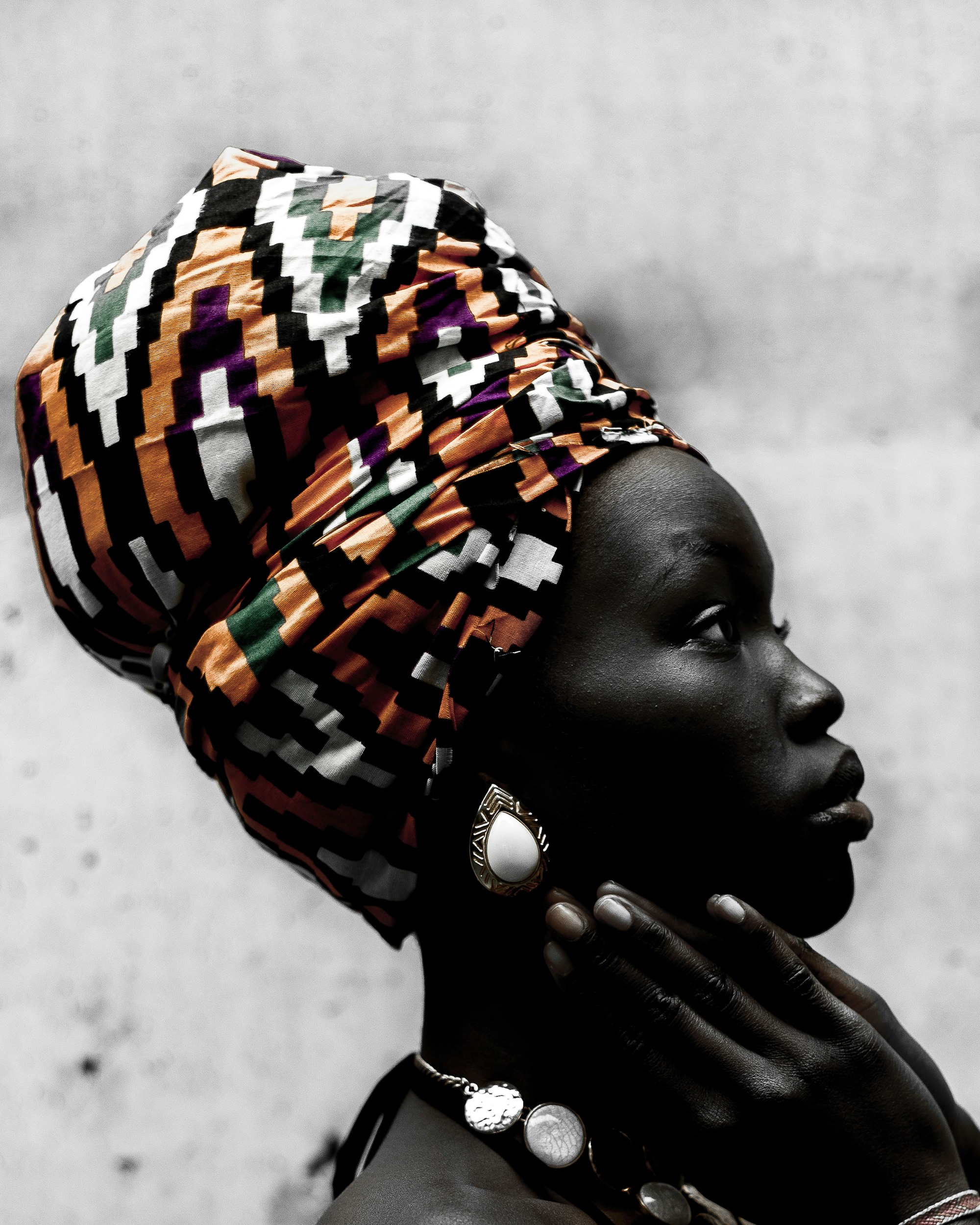Thoughts On African Security
Africa's security can be analyzed from three perspectives, which are Realism, Globalism, and Regionalism. These three perspectives are the best way to critically examine the African state's security policies.

Africa's security can be analyzed from three perspectives, which are Realism, Globalism, and Regionalism. These three perspectives are the best way to critically examine the African state's security policies.
Realism is widely understood as state-centric and rests on an argument about power polarity. Realists are a proponent of the traditional security school of thought that focuses on state actors and their military capacities to protect national security. The distribution of political power in the international system determines the interplay of global security.
From a realist perspective, African states lack a concert independent security policy, the image below illustrates the growing presence of a foreign military base in Africa as an impeding factor on the total independence of an Africa security policy. Andrews Attah-Asamoah, senior research fellow, African Peace and Security Dialogue Project, ISS Addis Ababa, his opinion on why African lacks the commitment to assess its security structure to address its crisis, he said that The gap in Africa’s response to its peace and security challenges are because of the continent’s inability to swiftly operationalize the African Peace and Security Architecture particularly its African Standby Force, which would help contain crises1. This is a result of the power play in global politics; also this ever-growing presence of foreign base will continue to effect Africa's security policy.
Source: Institute for Security Studies foreign military presence in Africa, 20192
Globalism is generally understood to be the antithesis of realism's statist power approach, to the understanding of the international security system. Globalism is rooted in the deterritorialization of world politics.3It is believed to be liberal actions to deterritorialize the state, and the state system, off the center stage of world politics.4Also to leave the state and the state system in, but have lots of non-state actors and systems operating across and outside the state boundaries. The globalized international community started in the 21st century, which was due to the advent of rapid technological developments and global threat that emerged from this process is what extended the study of international security studies, according to Al-Rodhan, global security is a "Multi-sum”5 against the traditional zero-sum statist affairs, which he outlined five dimension of security principles in the global stage.
Globalist recognizes the independent role state but promote the interdependent activities in the fight against insecurity that has ripple or transnational effects. The state is often a player in international security networks, but it does not necessarily, or even usually, control them, and is increasingly enmeshed in and penetrated by them.
Africa's place in global security is through the continent’s governmental organization African Union (AU) is Africa’s foremost player of global security; with its relation with her sister body (United Nations), both have been the forerunner in the fight against a global security threat.
Africa has created a significant peace operations capacity over the past decade and a half. African countries contributed only 10,000 troops to United Nations (UN) peacekeeping operations in 2000, when the African Union (AU) was established.6 By early 2017, African countries contributed approximately 48,000 peacekeepers to the UN, which amounts to about 50% of all UN peacekeepers (United Nations, 2016). In addition, the AU also has a joint operation with the UN in Darfur (UNAMID) with a total strength of approximately 19,500 personnel. Africa’s place in the global security is largely based on peacekeeping operation anything beyond that is futile.
Regionalism contains elements of both realism and globalism because both the neorealist and the regionalist approaches are rooted in territoriality and security and the globalist element in regionalism is attributed to the growing presence of the sub-regional organization, that have their own security machinery to maintain peace and security in their respective regions. Since decolonization, the regional level of security has become both more autonomous and more prominent in international politics, and that the post-Cold War era as accelerated this process.7
African states trend to control some level of realist power-play politics in their various region through their respectively sub-regional organization, in the West, Nigeria is perceived to be strong power to be reckoned in terms of the west Africa security policing, scholars attribute the formation of ECOMOG a security machinery of ECOWAS a sub-regional body in West Africa as a brain-child of Nigeria which in turn championed its Afrocentric policy, same is applicable to the Southern Africa where South Africa has to assert a level of hegemony in the affairs of Southern African states through the SADC.
Some of the sub-regional organization Southern African Development Community (SADC), The Economic Community of West Africa States (ECOWAS), The Economic Community of Central African States (ECCAS), or the Intergovernmental Authority on Development (IGAD), has forged ahead with institutionalizing elaborate mechanism for conflict prevention, management and, resolution.
During the Cold war era and the ever-presence colonialism in Africa is one of the factors that influence Africa’s regional security potentials including ideological differences among the member states, the unfinished nature of its liberation, and profound external, non- African interference- prevented any meaningful regional cooperation in the field of peace and security. In the post-Cold war era and the continuous proliferation of conflicts in the continent and the neglection of African states in global politics made Africans realized the importance of a regional security system to curtail and maintain the peace and security
The AU has consolidated its role as the continent's leading governmental organization, its different peace and security innovative machinery; Continental Early Warning System (CEWS) and its 15, 000 troops, African Standby Force (ASF). AU’s method of maintaining peace and security range from observer mission in BurudBurundito peace enforcement operation in Comoros, Cote d'Ivoire, Darfur and Somalia.8
The post-Cold War era shifted the world from a bipolarity of the international security structure to ‘the new world disorder’9, which promotes the struggle for power in international politics. Africa's security policy in terms of realist views is categorized on the structure of center-periphery. African states are politically independent but economy dependent on foreign powers which translate to the influence if not all of Africa the state’s policy especially its security affairs.
Conclusion
Africans alignment with either the West or East also contributes to the African states security relations with their regional crisis because of these foreign power interests. Apart from turning Africa into a proxy zone and the risky association with the foreign military base coupled with the AU constant call for member states to be circumspect in their security alignment, the lack of a concrete continental consensus on regulating these military presence impediments for independent security policy in Africa.
The final thought on Africa’s security is centred on the dependent nature of African states on either the Western or Eastern Hemisphere on economic survival and the ever-present foreign military base, will continue to hinder Africa's security policy.
Endnotes
- Andrews Atta-Asamoah, Proceed with Caution: Africa's Growing ForeiForeigntary presence accessed from http://issafrica.org/proceed-with-caution-africans-growing-foreign-military-presence
- Ibid
- Held, David, Anthony McGrew, David Goldblatt, and Jonathan Perraton. Global Transformation: Politics, Economics and Culture, Cambridge: Polity Press, 1999, pp. 7-9
- Ibid., pp. 3-5
- Five dimension are; Environmental security, National security, Human Security, Transnational security, and transcultural security in Al-Rodhan, R.F., Nayef. The Five Dimensions of Global Security: Proposal for Multi-sum Security Principle. Berlin: LIT Verlag, 2007.
- Lotze, W. Strengthening African peace support operations. Berlin: German Peace Operations Center (ZIF). Retrieved from http://www.zif-berlin.org/fileadmin/uploads/analyse/dokumente/veroeffentlichungen/ZIF_Policy_Briefing_Walter_Lotze_Dec_2013.pdf
- Ibid.,
- Katzenstein, Peter J. Re-examining Norms of Interstate Relations in the New Millennium, Kuala Lumpur: Paper for the 14th Asia-Pacific Roundtable. 2000. Carpenter, Ted Galen. ‘The NewWorld Disorder’, Foreign Policy, 84:1991, pp.24–39

